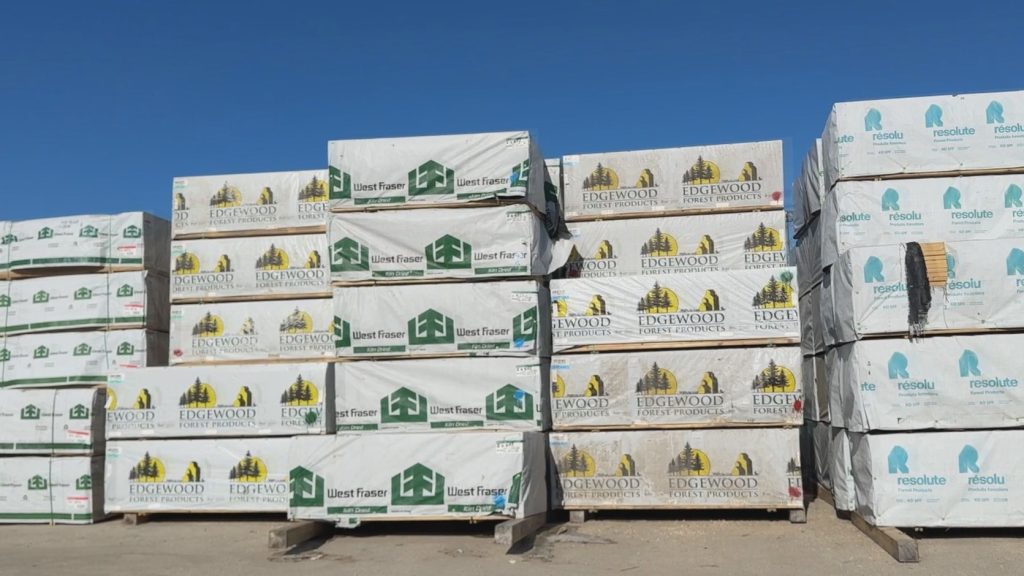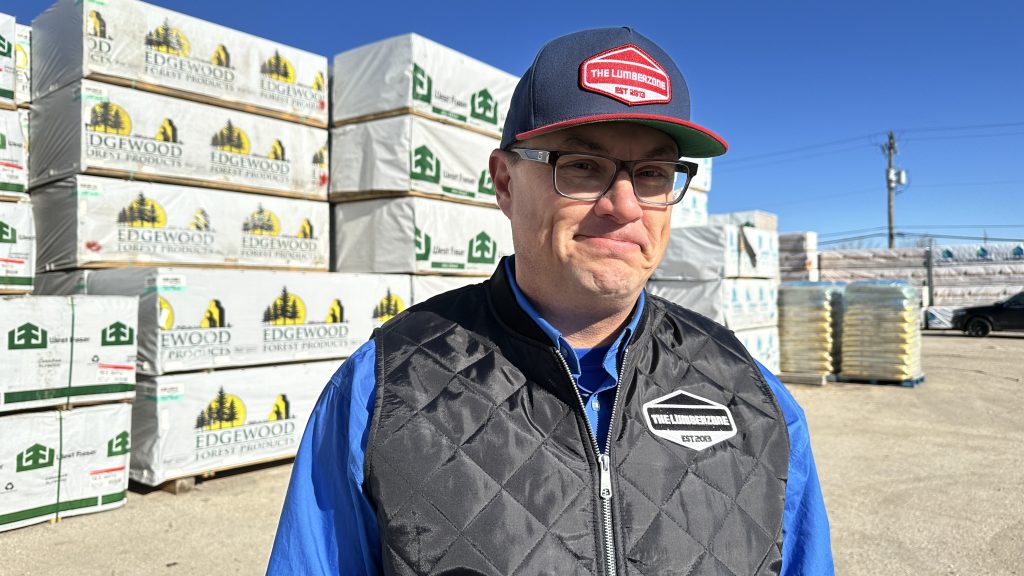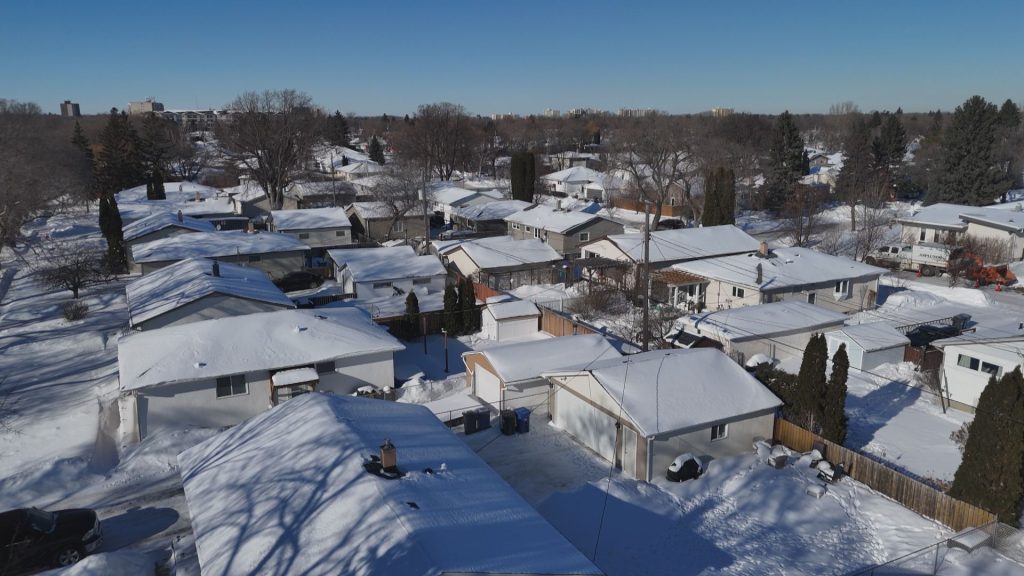Carbon tax going up, housing affordability going down, building experts

Posted March 22, 2024 1:43 pm.
Last Updated March 23, 2024 10:28 am.
The carbon tax is increasing on April 1st, and according to building experts so will Canada’s housing shortage.
“Of course, as a small business owner, I want to pay my bills. I don’t want to go bankrupt. I want to be able to pay all my employees,” said Joel Hartung, who owns a building materials retailer in Manitoba called The LumberZone.
Hartung says he’s bracing for April 1st because his costs are about to go way up.
“Our industry deals with a lot of big and heavy stuff where trucking is key to that. So raw goods getting moved to the manufacturer, manufacturer to the distributor, distributor to me and then me to the job sites of our customers. It just gets passed along because trucking is such a big portion of our business,” he explained.
“One thing we’re dealing with is just cost for trucking. When you look at our big steer tires for our big tandem trucks, they used to be $200 to $250. Now I’m paying about $600 for that, and that is basically based on cost of transportation … When just a tire goes up that much, you can see what everything else costs and just how that adds up, and that’s just something that gets passed along to the end user.”

A 2022 report from the Canada Mortgage and Housing Corporation predicts Canada will fall short of the number of housing units it needs to make housing affordable by at least 3.5 million in the next six years.
Liz Kovach, the president of the Western Retail Lumber Association, said, “When you see the increases on costs, it’s going to make it really difficult to keep things at an affordable level.”
She says the brunt of the costs of the carbon tax hike will be left with consumers, builders, potential homeowners, and people trying to rent.
“Every time there’s a material, so if you think of a lumber producer … they’re gonna be shipping material to a distributor. There’s going to be a carbon tax that’s embedded in there, which the distributor is going to pay. Then they’re gonna be shipping that material, which the next person is going to pay. So if you start taking that ‘nesting doll’, the end user is the homeowner, they’re gonna have a really tough time finding some affordable housing,” explained Kovach.
“Right now at a timeframe where we’re talking about affordability, an increase in the carbon tax is certainly not going to help us get there .”

“Folks my generation, we were in a home (at) 20 to 25 years old with some saving and prudent decisions. Now that’s maybe moving into 30 to 40-years-old for a lot of the people,” said Hartung.
“Not everybody, but lots of people’s dream is to get married, have some kids and have a home. And it’s scary to them that maybe they won’t be able to afford that.”
The carbon tax is set to increase by 23 per cent. Winnipeg mayor, Scott Gillingham, says while the city does not have any influence on the carbon tax, it’s doing what it can to help soften the impact of rising costs by working to help developers build faster.

“The City is trying to do what we can to make changes to zoning, streamline the permitting process so that we can help developers build faster,” said Gillingham.
“We need housing built in the City of Winnipeg, there’s a shortage of affordable housing so we’re working very hard on a number of fronts at the city to make sure we can get more housing built quicker.”
Hartung says any help from the government, be it federal, provincial, or municipal, is advantageous to the industry.
“People want to be able to buy land and start construction as soon as possible.”








